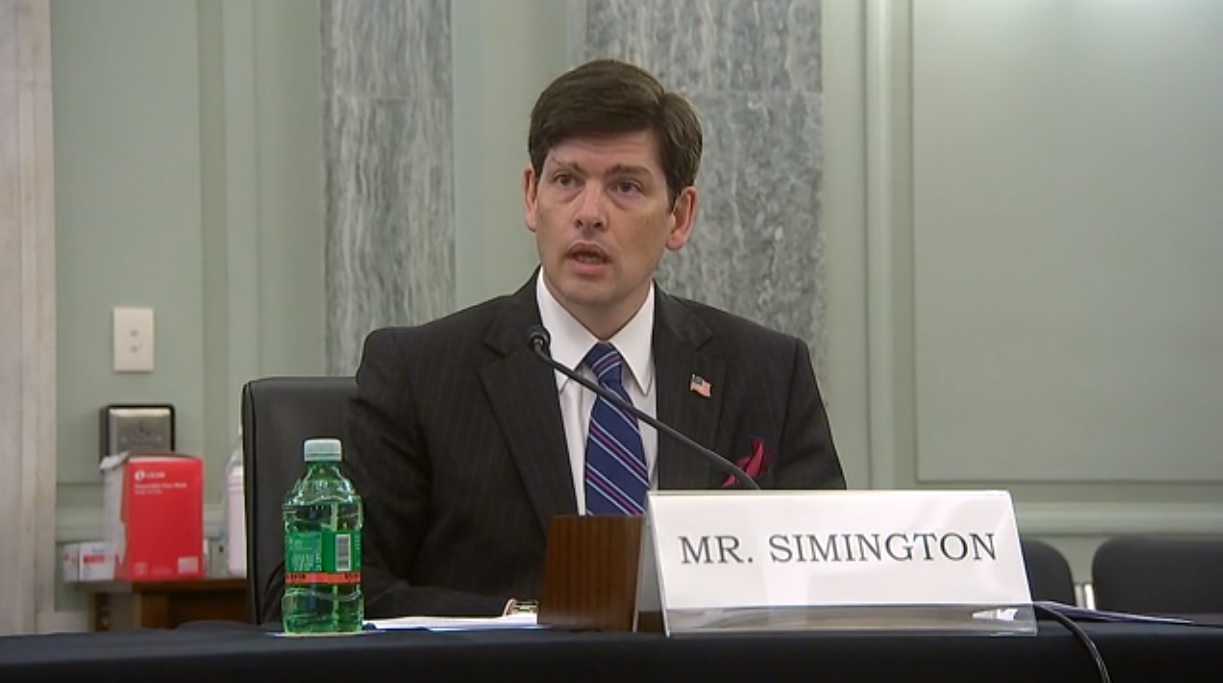FCC’s Nathan Simington Seeks Inquiry Into Reliance on Nielsen Data
GOP commissioner says if deep ties to single-source data are an impediment, they should be severed

The smarter way to stay on top of broadcasting and cable industry. Sign up below
You are now subscribed
Your newsletter sign-up was successful
The Federal Communications Commission voted unanimously Thursday (July 14) to tentatively adopt Nielsen's Local TV Report as the successor to the company's phased-out TV Station Index. The FCC uses the Nielsen info to determine TV station markets for must-carry/retransmission consent carriage elections and other purposes.
New elections are due in 2023.
But one commissioner, Republican Nathan Simington, used that vote to suggest the FCC's reliance on Nielsen data for that and many other purposes could be an overreliance on a single source that needed examining and perhaps rethinking.
“The commission looks to Nielsen to determine whether a broadcast station is ‘significantly viewed’ outside of its market,” Simington said in a lengthy statement at the FCC's July public meeting. “Nielsen’s market-level TV household estimates determine whether a station is within the ‘Top Four’ in the market, impacting ownership possibilities for broadcasters. And whether a station is failing for the purposes of ownership rules — again, Nielsen.”
He said it was a “big deal” to have a company “formally blessed” by the FCC by name as the basis of those regulatory determinations.
Looking for ‘Choke Points’
Simington said the reliance on Nielsen is understandable given that it is essentially the only game in town. That may not be a bad thing, he said, but it was worth looking at potential “bottlenecks, choke points and single points of failure.”
Elaborating on the point, he pointed out that the Media Ratings Council (MRC), which accredits media ratings agencies, had suspended Nielsen’s accreditation last year for "deep-rooted" performance issues, an accreditation Nielsen has yet to regain.
The smarter way to stay on top of broadcasting and cable industry. Sign up below
While Simington said he was confident Nielsen would work “diligently” to correct its defects, he said the suspension should “give the FCC pause” about being functionally obligated to adopt “recently unaccredited Nielsen data and definitions.”
“Might our obligation to act in the public interest even require us to, where possible, encourage innovation, or even just an alternative, in broadcast viewership and listenership analytics, so we avoid subjecting American media to this single point of failure in our broadcast regulatory scheme?” he said.
If broadcasters are obligated to buy and rely on data that could be inaccurate, Simington asked, do they have tools they can use to complete?
He pointed to the loss of broadcast ads to online platforms. “[T]here are reasons for this outside of the accuracy and completeness of audience analytics — the secular trend of media consumption is toward online platforms, which drives the advertising dollar. OK, sure. But is it not at least worth taking into account that among the considerations that advertisers — especially small businesses — cite for doing online advertising is the high trust they place in granular audience analytics?” he said, adding: “If advertisers believe that the main source of viewership and listenership data that they use to make buys on broadcast stations is unreliable, might that push them away from broadcast and toward online advertising platforms where data are considered more reliable?”
Consider the Sources
So, while the FCC item he supported made a “ministerial” change in rules, he said be believed the agency needed to take a harder look at Nielsen's inclusion in almost two dozen FCC rules. “If there are opportunities to identify or generate new sources of broadcast data, we should take them,” he said. “If there are improvements to be made in our usage of broadcast data, we should make them. And if our ties to Nielsen ultimately represent a structural impediment to the public interest, necessity, and convenience — we should break them."
FCC chairwoman Jessica Rosenworcel, who spoke after Simington, said the issue was complicated but she wanted to make sure every household can receive programming from where they live. She did not respond to Simington’s suggestion for an inquiry into Nielsen. ▪️
Contributing editor John Eggerton has been an editor and/or writer on media regulation, legislation and policy for over four decades, including covering the FCC, FTC, Congress, the major media trade associations, and the federal courts. In addition to Multichannel News and Broadcasting + Cable, his work has appeared in Radio World, TV Technology, TV Fax, This Week in Consumer Electronics, Variety and the Encyclopedia Britannica.

